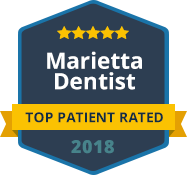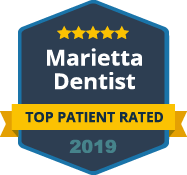Does Chewing Gum Really Prevent Cavities?

Chewing gum has been around for thousands of years. People have chewed gum to freshen their breath, to break bad habits, to lose weight, or simply to enjoy its flavor. Another lesser known reason why people chew gum is because they have read in an advertisement that chewing gum can help prevent cavities. To many people, this sounds too good to be true. An easy and enjoyable habit that protects oral health? Keep reading to learn more.
Inside the human mouth, millions of bacteria take up residence on any given day. These bacteria have the sole purpose of breaking down food particles that become trapped in and between the teeth after eating and drinking anything other than water. However, as these bacteria go about their soul duty, they begin to produce acids to help them in their endeavors. Oral acids are like every other acid – they eat their way through anything in their path; of course, inside your mouth this is your tooth enamel.
At its most basic explanation, cavities are formed when acids eat a hole into a tooth.
So how does this pertain to chewing gum? Well, one of the most underappreciated features of the mouth is saliva. If you have ever experienced severe thirst or dry mouth, then you know that saliva keeps the mouth moist and comfortable. However, saliva does a great deal more. Saliva helps to wash away not only particles left behind after eating and drinking, but it also helps to neutralizes acids. The more saliva there is in the mouth, the less likely bacteria are to adhere to the surfaces of the teeth and produce acids. Also, the acids that they do produce can be neutralized by mixing with the saliva inside the mouth. This is exactly how chewing gum helps to prevent cavities. Chewing gum promotes the production of saliva and keeps the entire mouth moist so that the acid-producing bacteria do not damage the teeth.
Of course, it does matter what type of gum you chew! It is essential that you choose sugar-free gum in order to prevent cavity development. Oral bacteria are most attracted to particles of sugar; therefore, if you chew gum laden with sugar, you are simply leaving behind deposits of sugar for the bacteria to congregate around in huge quantities. Chewing sugar-free gum allows you to receive the benefit of chewing gum without compromising your oral health.
At Dental Care Center at Kennestone, we care about all aspects of your oral health. We want to partner with you to help you achieve and maintain optimal oral health. Contact our office today to learn more.
Posted on behalf of Dental Care Center at Kennestone








